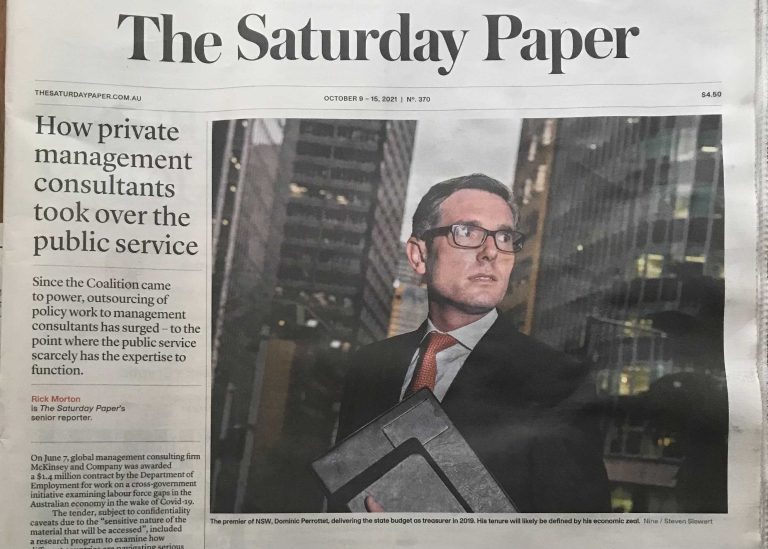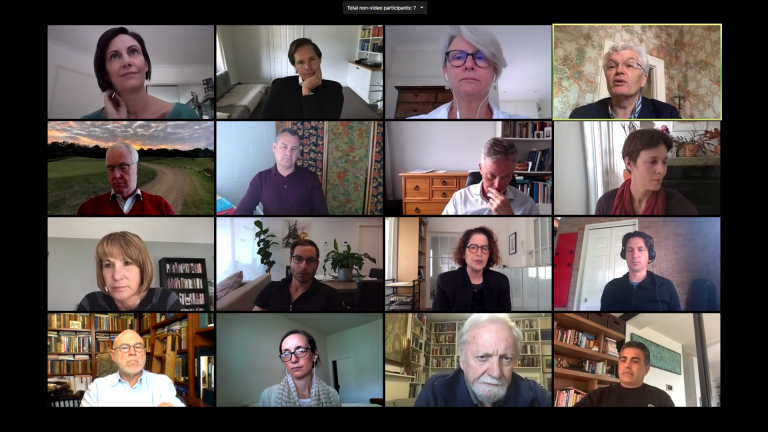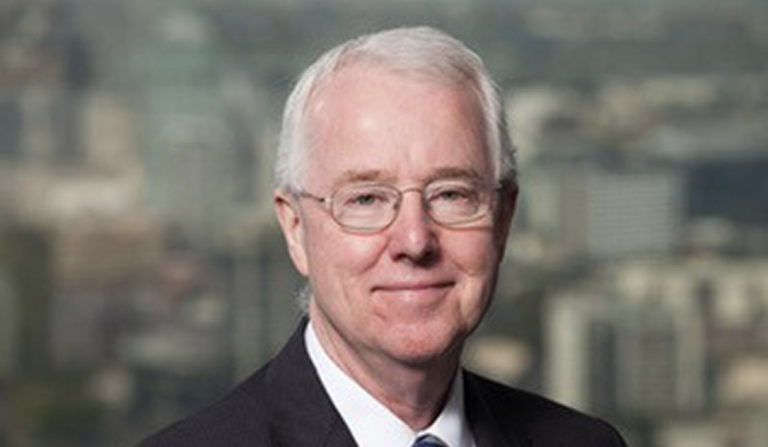When I was much younger, I found out that my surname was invented. The story goes that my grandfather was drafted in the Turkish army and sent to fight in Gallipoli. As he was Greek and felt little obligation to shoot at soldiers he had no quarrel with, he decided to go AWOL and changed his name to ‘Arvanitakis' so it would be difficult for the authorities to track him down.
The name stayed even after WWI because, according to my dad, fear of the next conflict was never far away.
I used to be ashamed and deny this personal history because it meant that I came from a family of ‘deserters'. This was hard as I always pictured myself as some sort of ‘tough guy'. Now that I am much older and (maybe) a little wiser, it is a story I am proud of – my grandfather refused to kill people that he had no argument with.
I would like to think that the ability to come to terms with aspects of our history that we are uncomfortable with is a sign of maturity.
| [adsense:234×60:1:1] |
| Advertisement |
This brings me to the great history debate, which seems to be closely linked with ‘values' and what it means to be Australian. After the recent history summit organised at the behest of the Prime Minister, many of us welcomed the idea of ensuring that history and the humanities are given their due. But many have also raised concerns that this is another front in the ‘culture wars'.
History is essentially a process of revision — we revisit the past and assign meaning to it based on the perspectives of the present. This gives us an opportunity to take pride in elements of which we were once ashamed — like deserting grandfathers, or in Australia's case, the role of convicts in our history. But it also allows us to recognise our past mistakes, including the dark aspects of history such as our treatment of indigenous Australians and our decision to enter wars that have been (or will be) judged as ‘unjust'.
One such ‘dark' phase that we should remember this week is the time that Australia's own shores were offered up as a ‘war zone'; Wednesday, the 27th of September 2006, marked the 50th anniversary of the first nuclear test in Maralinga.
Background to Maralinga
Between 1952 and 1967 at the behest of the British government and with the agreement of Sir Robert Menzies, a series of major nuclear bomb tests and minor trials were conducted at Maralinga and various other Australian locations. Little knowledge of what was going on was available to broader public – all was hidden behind the veil of national security. During this time, over 8,000 Australian and 22,000 British servicemen were exposed to nuclear fallout without any real thought for the consequences. A number of the bombs tested were more powerful than those dropped at Hiroshima and Nagasaki.
 |
A number of investigations including a Royal Commission in the 1980s confirmed that the nuclear tests were carried out with inadequate assessment of either the tests themselves or the impacts on those exposed to radiation. In fact, the Australian government was kept in the dark for much of the time and many Australian troops seemed merely to play the role of guinea pigs. Exactly what the Menzies government would have done if it knew more is uncertain, but this must be seen as a neglect of its responsibilities regardless.
What we do know following the Royal Commission is that there was a lack of involvement which concealed the hurriedness, lack of knowledge and expediency of the tests. The result was continuous lapses in safety that did not emerge until it was much too late for many veterans.
Fifty years after the bombs, the consequences are evident in the reduced life expectancy of veterans, their manifest illnesses, and the health problems of their children and grandchildren. The Royal Commission, several compensation cases before the British Tribunal and its Australian counterpart, and recent Australian Government recognition of the veterans have brought some of the aftermath of the testing to light.
Though some compensation has been provided, a sticking point that remains is the issue of whether the veterans exposed to the nuclear fall out were in ‘war zones'.
A war zone?
It is difficult for many of us to imagine that our country was actively ‘at war' within its own borders during the 1950s and 60s – but according to Paul Brown [1], that is exactly what happened. Maralinga became part of the ‘hot zone' of the Cold War.
Much like the Iraq conflict, an Australian Prime Minister committed our country to a war, offering up part of it as a ‘hot zone', without consultation, and certainly without any form of popular mandate for making war. Menzies' decision to go to war without informing the public imposed upon a democratic nation a decision with far reaching consequence in a most undemocratic way. Again, we can draw parallels with John Howard's commitment to the Iraq war regardless of public opposition.
Despite all the flag waving and nationalism that has marked the Howard Government's term in office, it has largely ignored both the plight of Australian Nuclear Veterans and the history of Maralinga. This is an abandonment of men who volunteered to risk their lives for Australia and have suffered both psychological and physical hardships as a result.
The health impacts of the tests were highlighted by the British Nuclear Veterans Association in a 1999 survey of 2,500 veterans many of whom were at Maralinga. The survey found that:
- 30% of the men had died, mostly in their fifties;
- In their grandchildren spina bifida rates are more than 5 times the usual rate for live births in the UK;
- More than 200 skeletal abnormalities were reported; and
- More than 100 veteran's children reported reproductive difficulties
Lessons of history
Just as important however, is that we should not ignore the lessons of such an event. While exposing Australian troops to nuclear fallout is not something that we as a nation should be proud of, it is something that should not be forgotten. The truth is we did this because a Prime Minister blindly followed a military power without asking any questions.
As noted by Seymour M. Hersh in the New Yorker recently, one definition of insanity is to do the same thing over and over while expecting different results. Unless stories like Maralinga are taught to future generations, we are bound to continue repeating the same errors – and more men and women will be sent to their deaths in wars that history will find hard to justify.
�
Endnotes
1. Brown, P. (2006) Maralinga: Theatre from a Place of War, in McAuley, G. (ed), Ground Work: The Politics of Place and Performance, Peter Lang, Berne.
Links:
Australian Nuclear Veterans Association
British Nuclear Test Veterans Association
�



